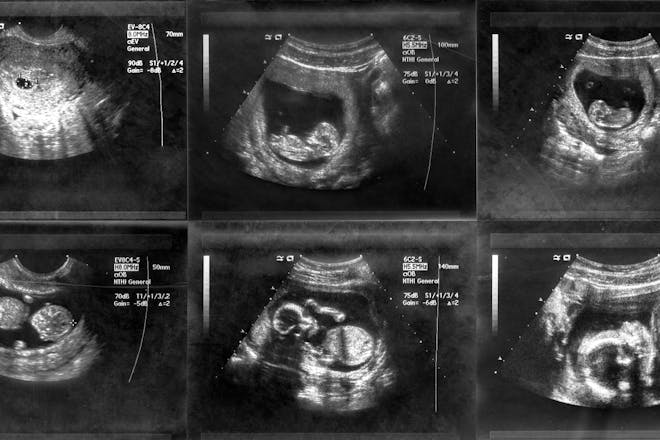How to get pregnant fast: 14 golden rules
Advertisement Promotion with Clearblue
Want to improve your chances of conceiving ... fast?
There are things you can do to improve your chances. Some you might have heard about, like reducing obesity and improving your diet. But do you know all the science-based tactics that can help with pregnancy?
One way you can increase your chances is by taking advantage of a good ovulation test. Clearblue Ovulation Tests are used by millions of women for their reliability and ease of reading results. Depending on the test you choose, you can even predict 4 or more of your most fertile days every cycle!
FREE NEWBORN NAPPIES
How to get pregnant fast: 14 golden rules

1. Have sex!

Sounds silly, we know, but you'd be surprised at how often we've interviewed fertility experts and, on asking them for their number one fertility tip, we've been told:
'Just tell them to have sex!'
2. And make sure it's regularly

If you're only having sex once in a blue moon, and wondering why you're still not pregnant, you're probably not doing it often enough to be in with a chance.
NHS guidelines recommend having regular sex throughout the month for the best chance of getting pregnant.
3. Make it fun

If you're nervous about turning sex into a chore, then having sex every two to three days is a good way to keep things spontaneous without missing that sought-after ovulation window.
You can find some great tips on how to stop sex becoming a chore when you're TTC here.
4. Try the best position

You've probably heard that different sexual positions increase your chances of conceiving.
Want to know the best position to conceive a baby?
According to fertility professor Allan Pacey at Sheffield University, it's ANY!
He says that the best thing couples can do is to 'just get on with it'.
Read more about sex positions to help you get pregnant, here.
5. Find out when you're ovulating

If you want to maximise your chances of conceiving by having sex when you're at your most fertile, then finding out when you ovulate is the best next step.
The easiest way to do this is by using an accurate ovulation test. Clearblue Advanced Digital Ovulation Test accurately tracks not only luteinising hormone but also estrogen to identify your wider fertility window. It typically identifies 4 or more fertile days*.
Having sex before, on and during your day of ovulation gives you the best chance of conception.
Our ovulation calendar can help.
*Based on a Clearblue study of 87 women, 4 or more fertile days were identified in 80% of cycles using actual cycle length.
6. Know the facts

If you're trying to get pregnant, you've probably been reading up on the best ways to increase your chances.
You might be doing things such as lying on your back with your legs in the air after sex. Or putting a pillow under your bottom to raise you up and make sure the sperm 'doesn't fall out'.
Although neither will do you any harm, there's no evidence to suggest that they will help either.
7. Eat a healthy diet

A major study in 2015 found that those with healthy diets were much more likely to conceive.
The findings, presented at the European Society of Human Reproduction and Embryology's annual meeting in Lisbon found that regular consumption of fruit, vegetables and pulses was associated with far higher levels of fertility.
8. Up your folic acid intake

According to the latest research published in medical journal, The Lancet, '96% of women of reproductive age have iron and folate dietary intakes below the recommendation for pregnancy.'
The Royal College of Obstetricians and Gynaecologists (RCOG) finds this extremely worrying and, together with the NHS, recommends:
'that all women should take a daily supplement of 400 micrograms of folic acid while they're trying to get pregnant and during the first 12 weeks of pregnancy, in order to reduce their baby's risk of neural-tube defects (where the spinal cord fails to develop properly) such as spina bifida.
Find out everything you need to know about folic acid when you're TTC here.
9. Maintain a healthy weight

Latest research published (in The Lancet) confirms that maintaining a healthy weight BEFORE you conceive:
'impacts on the chances of conceiving naturally, having a good pregnancy and delivery, as well as affecting the health of children in their later life.'
According to RCOG, 25% of women (and men) are obese and 1 in 4 pregnant women is overweight or obese.
NHS guidelines advise that a BMI of over 30 or under 19 can affect fertility, with the safest range being between 20 and 25.
10. Quit smoking

Expert advice is to quit smoking for your best chance of conception. Cigarettes contain lots of chemical nasties that can affect the reproductive organs and decrease the chances of conception for both men and women.
11. Avoid alcohol

The Department of Health recommends that if you’re pregnant, or planning to become pregnant, you should avoid alcohol altogether.
If you do opt to have a drink, it recommends sticking to no more than one or two units of alcohol (equivalent to one or two small glasses of wine) once or twice a week to minimise the risks alcohol may pose to your baby.
Drinking alcohol excessively can also affect the quality of sperm.
12. Try and relax!

While the jury's still out on whether stress really does reduce fertility, it definitely won't make your journey towards conception any more fun.
It can be hard, you want to be pregnant right now, everyone else in the world is pregnant, your mother-in-law keeps asking you whether you're expecting and with all that testing the consistency of your cervical mucus, you don't have much time for relaxation!
But whatever it is that you find relaxing – yoga, acupuncture, exercise ... do it!
13. It takes 2

Latest research says that, 'the diet and health of both parents can have profound implications for the growth, development, and long-term health of their children before their conception.'
So it really does take 2 to help increase your chances of conceiving.
There are plenty of things men should try doing when you're TTC, or even before, including giving up smoking, reducing alcohol intake and losing weight if he's overweight.
Find out more about what men can do to help get pregnant, here.
14. Ask for help

One in seven couples – approximately 3.5 million people in the UK – may have difficulty conceiving, so if you do need to seek help, you're not alone. Your GP will be able to advise on appropriate next steps or treatment.
Struggling to get pregnant? Read more about fertility problems and the next steps, here.
Clearblue Fertility Monitor proven to help you get pregnant faster AND naturally! See more details here at Amazon.



